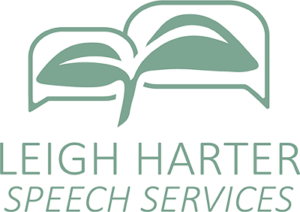Speech & Occupational Therapy Treatment in Hartland, MI
Uncovering Passion in Diverse Speech & Occupational Therapy Expertise
At Leigh Harter Speech Services, we invite you to uncover the profound passion that fuels our treatment approach. Our devoted team is wholeheartedly dedicated to improving lives through a range of specialized services designed to meet the unique needs of every individual. Take a closer look at our heartfelt approach to speech and occupational therapy and embark on a transformative journey towards improving your quality of life.

Acquired Brain Injury
Activities of Daily Living
Aphasia
Apraxia
Apraxia is the difficulty and/or inability to execute purposeful and coordinated movements even though the person has the desire to speak and the mouth and tongue muscles are physically able to form words. This often results in rearranged sounds within words.
Attention
Autism Spectrum Disorder
Speech and Occupational Therapy are instrumental in supporting individuals with Autism Spectrum Disorder (ASD) by addressing communication and sensory challenges. These therapies assist individuals with ASD in developing effective communication skills, managing sensory sensitivities, and improving their social interactions, contributing to a more fulfilling and inclusive life.
Cognition
Dysarthria
Dysphagia/Feeding Disorders
Executive Functioning
Fine Motor Coordination
Gross Motor Coordination
Home Evaluation & Modification
Literacy
Neurological Disorders
Oral Myofunctional Disorders
Parkinson's Disease
Play Skills
Post-Concussion Syndrome
Pragmatics
Range of Motion/Strength
Reflex Integration
Self-Regulation
Sensory Regulation
Traumatic Brain Injury
Visual Perception
Voice
Voice disorders are typically categorized as functional, organic, and/or psychogenic and occur when pitch, quality, or intensity differ for an individual’s age, gender, cultural background, or geographic location. Some voice problems last for a short time while others may last longer. These disorders can include vocal fold nodules, polyps, vocal fold paralysis, paradoxical vocal fold movement (PVFM), or spasmodic dysphonia.
